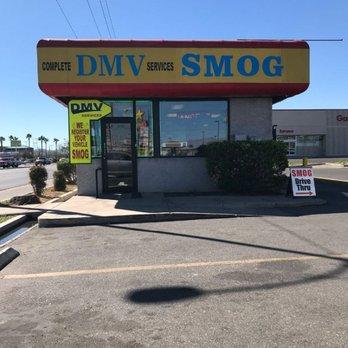How to Pass a Smog Check in Las Vegas: Tips and Tricks

Understanding Smog Checks in Las Vegas
In Las Vegas, smog check are a crucial part of vehicle ownership, aimed at reducing harmful emissions and maintaining air quality standards. Understanding the process and preparing adequately can help ensure your vehicle passes smoothly.
Preparing for Your Smog Check
Gather Required Documents
Before heading to a smog check station, ensure you have your vehicle registration, identification, and any previous emission test results if applicable. These documents are essential for verification and record-keeping purposes.
Choosing a Certified Smog Check Station
Researching Local Stations
Not all smog check stations are created equal. Research local stations to find reputable ones with good reviews and ratings. Ensure they are certified by the Nevada Department of Motor Vehicles (DMV) and equipped with up-to-date testing technology.
Maintaining Your Vehicle Before the Test
Regular Maintenance Checks
Routine maintenance is key to passing a smog check. Check engine oil and fluid levels regularly, as well as the condition of your exhaust system. Fixing minor issues beforehand can prevent failures during testing.
Tips for Passing the Smog Check
Drive Your Vehicle Before the Test
On the day of the test, drive your vehicle for at least 20 minutes before arriving at the smog check station. This helps warm up the engine and ensures it operates at optimal conditions during testing.
Warm Up the Engine Properly
Properly warming up the engine allows it to reach its operating temperature, which can improve emissions performance during the test.
Drive at Steady Speeds
During the test, follow the technician's instructions and drive at steady speeds. Avoid sudden accelerations or decelerations, as these can affect emission readings.
Understanding Emission Standards
Familiarizing with Nevada Emission Limits
Nevada sets specific emission limits that vehicles must meet. Understand the types of emissions tested, such as hydrocarbons (HC), carbon monoxide (CO), and nitrogen oxides (NOx), and the acceptable levels for each.
What to Do During the Smog Check
Following Technician Instructions
Listen carefully to the technician's instructions during the test. They may ask you to turn off engine accessories like air conditioning and radio to ensure accurate readings.
Following Safety Protocols
Ensure your vehicle is safely secured during testing. The technician will perform the test while your vehicle is stationary, with sensors connected to measure emissions.
Dealing with Test Results
Passing the Smog Check
If your vehicle passes the smog check, you'll receive a certificate indicating compliance with emission standards. Keep this certificate for your records and future vehicle registrations.
Keeping Records for Future Reference
Maintain records of all smog checks and emission-related repairs. These records may be required when renewing your vehicle registration or selling your vehicle in the future.
Addressing Failed Emission Tests
Understanding Common Failures
Common reasons for failing a smog check include faulty oxygen sensors, malfunctioning catalytic converters, or incomplete readiness monitors. Diagnosing these issues promptly can prevent repeat failures.
Diagnosing Potential Issues
If your vehicle fails the smog check, a technician will provide a report detailing the reasons for failure. Seek professional assistance to diagnose and repair any identified issues.
Getting Repairs Done
Once repairs are completed, return to a certified smog check station for a retest. Ensure the repairs address the specific issues identified during the initial test.
Legal and Environmental Implications
Compliance with State Regulations
Complying with smog check regulations is not just a legal requirement but also contributes to environmental conservation efforts. Reduced vehicle emissions help maintain air quality and mitigate pollution.
Understanding Legal Consequences
Failure to comply with smog check requirements can result in fines or restrictions on vehicle use. Ensure your vehicle meets emission standards to avoid legal consequences.
Importance of Clean Air Initiatives
Participating in smog checks supports clean air initiatives in Las Vegas and helps protect public health by reducing harmful pollutants in the air.
Conclusion
Successfully passing a smog check in Las Vegas requires preparation, maintenance, and adherence to testing procedures. By understanding the process and following these tips, you can ensure your vehicle meets emission standards and contributes to cleaner air in the community.
Comments